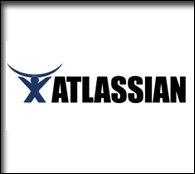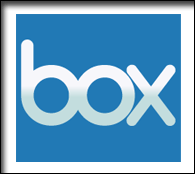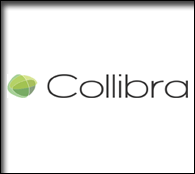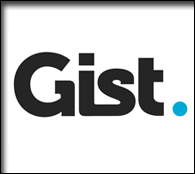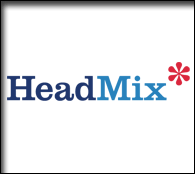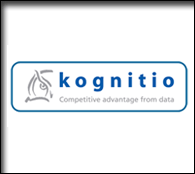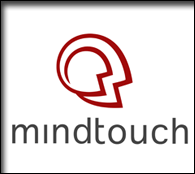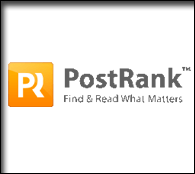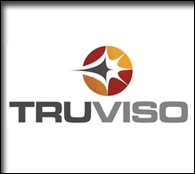Archive for May, 2007
Huh?
by Eric Norlin on May.30, 2007, under speakers
“Huh?”
That was my reaction when Salesforce.com’s PR agency approached me about having Adam Gross (their VP of Developer Marketing) speak at Defrag. My reaction was not a reflection on Adam at all (quite the contrary), I guess I’d just never once thought that Salesforce.com would find Defrag to be of interest. Luckily (as with so many things), I was *really* wrong. And, in light of what Salesforce.com is doing to develop a hosted *platform* for web development, I now can see where it makes *perfect sense.*
Bottom Line: As per usual, I have very little idea what I’m talking about when it comes to Defrag, and the community is helping to define things. We’re delighted to have Adam joining us to help us address the topic of “Defragging the Enteprise: DIY mashup tools and widgets.”
D, schwag, conferences and the economy
by Eric Norlin on May.30, 2007, under general
Have you ever noticed that for all of our talk about “distributed information” and “everyone can blog”, the topics among people still seem to coalesce around one or two things? If you’ve ever studied complex adaptive systems theory, you’ll recognize this trait as something all networks share — some nodes on the network just naturally gather more “influence”. In any case, this week the story is going to be “D” (walt mossberg and kara swisher’s conference)…this morning that’s reflected in Microsoft’s launch of Surface.
All of that “conference buzz” always gets me thinking, and I’m not even at D. Thoughts:
1. Is there *anything* more useless than conference schwag? One of the common ways to tell how “well” a show is doing is to see how expensive their conference bags are, and what the contents of those bags look like. Now, to be clear, I understand why vendors *want* to distribute their “handouts” to folks — I just think there are better ways to do it. One of the unwritten assumptions I had going into Defrag was that I was not going to have conference bags filled with conference schwag. I assume everyone will have their own bags already (I do), and I’d like to provide attendees with something that they’ll actually want to hang onto —I was thinking about a nice Defrag fleece (we will be in Denver in November). Am I crazy to eliminate the bag and schwag?
2. You can always tell when the economy is going to be okay because there are a ton of conferences. And man, are there a lot of conferences out there right now! So, why start one? Well, I’m the peculiar kind of idiot (uh - i mean “entrepreneur”) that thinks he can do it “better.” ![]() Seriously though — IBM is throwing a show in vegas in October that has Dana Carvey and Diana Summer listed as “conference entertainment.” WHAT?!? New resolution: the “entertainment” at Defrag will come solely through meaningful conversations with people thinking about the same things.
Seriously though — IBM is throwing a show in vegas in October that has Dana Carvey and Diana Summer listed as “conference entertainment.” WHAT?!? New resolution: the “entertainment” at Defrag will come solely through meaningful conversations with people thinking about the same things.
3. Despite the schwag overflow and the seriously crowded conference space, I say we’re not “bubbling” just yet……
Tim on the Quid Pro Quo
by Eric Norlin on May.24, 2007, under conference topics
I just discovered Tim Bourquin’s blog about starting conferences and tradeshows — a real treat for a guy like me. ![]()
One of Tim’s entries that immediately caught my eye was the “Quid Pro Quo” entry, which addresses the eternal dilemma for conference organizers: exhibitors or sponsors that *won’t* have a presence there unless you include speaking in the deal. Tim’s against it, and so am I. The reason is simple: you can tell a vendor ALL DAY LONG that your attendees don’t want to hear their sales pitch (and what they’d really like to hear about is a visionary or unique thought about a problem), and they’ll still get on stage and give you their sales pitch.
What you will notice is that with Defrag we have something called the “Sponsor Challenge.” This is our attempt to acknowledge the contribution of our high-end sponsors, while holding the line on high quality content.
The Sponsor Challenge is a short-period time slot on the schedule that we’re describing as the “American Idol” version of Defrag. Vendors receive 10-15 minutes to give us their “vision” of Defrag, and then the audience gets to play Simon, Paula and Randy. This clearly marked (and very limited) format allows me to go to the presenting vendors and say, “you’d better send someone *really* good,” as I’m sure that the Defrag crowd is going to “engage” in a very serious fashion (ie, they’ll rip a sales pitch to shreds). I actually think this going to be fun, as its not the passive “sit and listen” approach.
So, are we holding the line on the separation of content and sales? Of course we are! You don’t have to be a sponsor to get onstage. But high-end sponsors are given a limited, format-based means for interaction. I think it is the “clearly marked” part that makes all of the difference — all too often, the high end sponsors of a show are given stage slots as the part of the package and the conference producer doesn’t bother to tell the attendees that’s what’s happening.
As always, we’ll be collecting feedback along the way and improving as we go….Defrag really is a event that the community will build over time (just wait till you see what happens between the first Defrag and second Defrag).
(btw: My above comments apply specifically to a smaller, high-touch conference like Defrag and would alter radically as a conference became an expo — to be totally in line with Tim.)
Watching the craziness from the outside
by Eric Norlin on May.22, 2007, under general
Mike Arrington posted an interesting entry about how the Valley could use a downturn right now. Go read the whole thing.
That said, a few comments:
1. As you know if you’ve read this space for any amount of time, I think we’re just at the beginning of what Mike terms “a bubble.” Give it another 18-24 months of bubbliness, and I’ll start to be convinced.
2. And, while I’m not really qualified to speak to the whole “valley as the best ecosystem for entrepreneurship” meme (having never lived or started a company there), I will say that having not lived in the Valley through the last bust (and the current “boom) makes me feel as though I’ve had an interesting vantage point.
3. Anyone who’s spoken on the phone with me about Defrag has probably heard me utter the words, “there was no way I was launching *another* tech conference in the bay area.” That’s not because I have some inherent hatred of the Bay Area — rather, I just (personally) started to feel like the “echo chamber” out there was getting a little too “echo-y,” and I felt like conferences that take place outside of that often offer up a different (and sometimes saner) view of things.
4. I loved reading this from Mike: “It may be time for some of us to leave for a while and watch the craziness from the outside again.” Ahhhh - two words: DE FRAG.
5. I honestly do believe we’ll put something special together in Defrag - and I think part of the reason we’ll do it is precisely because it is NOT located in the Bay Area. I’m not sure I can spell out exactly *why* that is, but I know from experience that when people have to go *to* something (in say, I dunno, Denver), they tend to be more “there.”
6. If you look at the companies we’re attracting to Defrag, I’ll think you’ll see a common thread: they tend to be “grounded” - not “me-too” companies; folks that have either A) a unique vision or B) a viable and growing business or C) both. And while I obviously can’t go releasing the names and titles of registered attendees, I can tell you that they reflect the same kind of “groundedness” (and very few of them are from Denver).
Are we “watching the craziness from the outside”? In a way, sure. But more importantly, I think companies in the Defrag space realize that the level of innovation that they’re talking about is a long-haul proposition (think 10 years). And that level of innovation (versus a million me-too features that probably shouldn’t be companies) makes all the difference in the world.
Being a guy that is heavily involved in tech conferences, I’ve helped launch ones during downturns (Digital ID World was started in 2002 on the day that Comdex went bankrupt), and I’ve seen ones take advantage of “bubbles.” Personally, I’m not interested in “gaming” an economic cycle. I’d much rather help a community to form around something significant — something that will probably take 10 years to really get under our belts.
Maybe you’ll come watch the craziness from the outside with us — and, even better, help us build something sane and sustainable.
RSS in the enterprise
by Eric Norlin on May.18, 2007, under industry stuff
Here’s how you *know* that you’re “edgy”: you’re thinking about the future of RSS (and all of the funky, mashup, defrag-y things you can do), while people like Janet Lee Johnson are still busy doing the real work of getting enterprises to adopt what’s available *now*. ![]()
On a more serious note: Janet’s post is great because it points out the simple power of what we’re talking about, and the bottom line is this: productivity enabled by improved means of discovery and assembly. At the end of the day (in eric’s simple world), all technology in the enterprise is adopted for only two reasons: either it lowers cost, or it increases revenue. Productivity is, of course, a cousin to increasing revenue.
All of this new stuff that we’re talking about (as with all good innovation) is really about a new means of accomplishing one of those two things. And the “means” can be broadly thought of in terms of “discovery” or “assembly” — where discovery roughly equates to productivity-enhancement and assembly roughly equates to cost-lowering.
(sidenote: the Defrag advisory board uses wikis and shared docs — all with RSS — to work on content. And really, isn’t that better than passing around a word doc with “track changes” turned on?)
Joshua is coming, are you?
by Eric Norlin on May.16, 2007, under speakers
I’m very pleased to say that we’ve confirmed Joshua Schachter, founder of del.icio.us (now with Yahoo!) for speaking at Defrag. We’re still working out the details of exactly what, how, and why, but I’ve got Clay Shirky engaged in helping with that, so I’m sure we’ll step outside of the normal boundaries.
The title of the post is me blantantly ripping off the Personal Democracy Forum’s tactic (”Tom is coming. Will you be there?”), but hey - it is a pretty neat little tactic on their part. The point, of course, remains the same: we have a *very* limited number of tickets for Defrag (250ish), which is part of what will make it such a unique time. If you think you’re going to go, don’t delay in registering.
Okay - back to finding interesting people to put on stage together…
Visualizing Defrag
by Eric Norlin on May.14, 2007, under speakers
You might’ve noticed over on the agenda page that I’ve got a session devoted to “Visualization of Social Intelligence.” Now I’m not even totally sure what that means, but Jerry Michalski opened my eyes to how much we *should* be including visualization in the “defrag space” very early on.
To that end, I’ve just recruited Matthew Hurst to help us address this. Matthew is a “scientist” (I never saw a “mad” in the title) over at Microsoft’s Live Labs, and is doing some *really* interesting things with visualization (see here). He and I are going to be talking about how best to bring some visualization sense to the defrag space as we lead up to the conference….
The solution to information’s overabundance
by Eric Norlin on May.14, 2007, under defrag "theory", speakers
I’m only 19 pages into David Weinberger’s new book, Everything is Miscellaneous (or, “EiM” in eric shorthand), but I’ve already found one treasure of an idea. On page 13, as the good doctor is beginning to deal with the sheer overabundance of information in the digital world, he throws off this great quote:
“…the solution to the overabundance of information is more information.”
Now, I know I’m not the smartest guy in the room, but for some reason this statement stopped me in my tracks. It is so obvious, and yet I’ve never quite heard it phrased that way. I’ll probably never get around to reviewing the entire book (like so many are doing), but I will try to point out things like this as they hit me. All of this will be your cue to sit back and say, “why the hell didn’t Norlin know that before?” ![]()
With regards to the above idea, I’m already swirling around tags, twitters, aggregators, etc — and thinking “of course!”
(In case you haven’t noticed, David is keynoting Defrag.)
[update: if you’d like to see David talk about this a bit, go here for the interview he gave at Yahoo!. And if you’d prefer to just read a bit, check this out.
Categories for defragging the enterprise
by Eric Norlin on May.10, 2007, under defrag "theory"
Mike Wagner over at JackBe is posting stuff that I had to read a couple of times to really grasp. Speaking about the tacit worker, four categories are outlined (quoting at length here):
Building (Developers): Create solutions that meet changing business needs by leveraging existing enterprise, partner, and public resources.
Acquiring knowledge (Data Gatherer): Need fast views of disparate information the majority of their time in the office, are very mainstream in their office looking for data.
Designing (Power User): Builds situational solutions to further streamline daily tasks and shares these with others.
Making decisions (Knowledge Worker): Mild Analytics, Information search and data manipulation. Planning.
I think that intersects pretty well with the “discovery and assembly” stuff that I’ve been alluding to….
Two new sponsors
by Eric Norlin on May.09, 2007, under sponsors
I try hard not to spend *all* of my time on this blog simply promoting Defrag (which is to say that I try to write something of substance when possible), but some days you just can’t help being happy….
With that in mind, I’m pleased to announce our two newest Silver sponsors: JackBe and Near-time. Adding these two silver sponsors means that our silver level of sponsorship is now *sold out*. (We still have a couple of golds and platinum left, so if you still want in, we still have room.)
It’s kinda funny: when I’m working the “sales side” (I’m sales, marketing, operations, content, pr, etc) I often tell vendors that I’m averaging a sale every 3 days or so. I know they think I’m just trying to give them a “force function” to buy, but actually, I’m just letting them know where they stand.
As I’ve said before, the opportunity to be involved in Defrag (through attending or sponsoring) will diminish with every passing day, while the benefit of being involved will increase with every passing day….you know what to do: register, or drop me a line (enorlin AT mac.com) about sponsorship. ![]()
